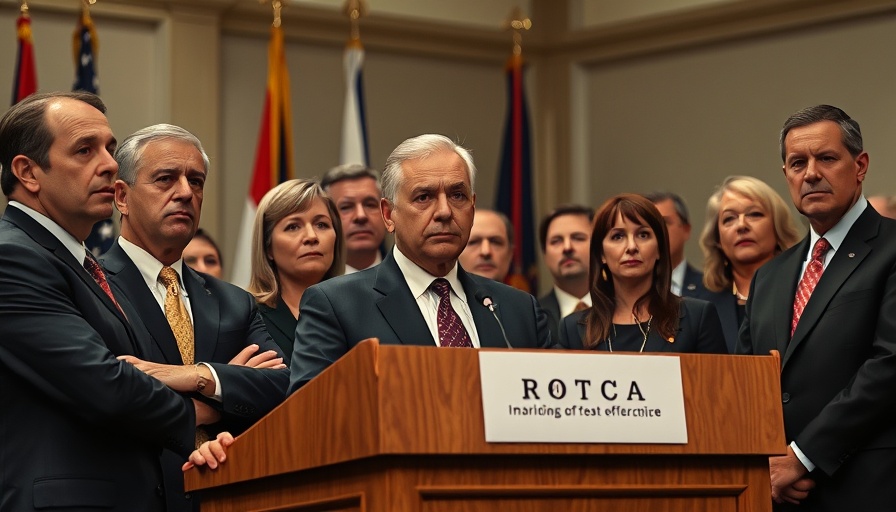
Understanding Trump's Tax Breaks: A Closer Look
House Republicans recently introduced a significant tax reform bill that emphasizes tax breaks promoted by former President Donald Trump. Estimated at roughly $4.9 trillion, the package seeks to extend previous Trump-era tax benefits and introduce new ones for various aspects, including tips, overtime pay, and auto loans. These breaks cater specifically to low and middle-income Americans, illustrating a shift toward boosting everyday financial supports.
The Cost of Tax Breaks: Who Pays?
While these tax breaks may offer relief on paper, the reality is far more complex. The proposed legislation aims to fund its expansive costs through cuts to essential services, such as Medicaid and food stamp programs. This raises a critical issue: while tax relief can provide immediate benefits, it often comes at the expense of the most vulnerable populations. A shift toward taxing private university endowments and the unusual measure of stripping tax-exempt status from organizations deemed supportive of “terrorists” adds layers of controversy to the proposal.
Political Reactions and Implications
Since the introduction of this tax bill, the political reaction has been mixed. Some Republicans champion the effort as a mechanism to foster economic growth and support families. Others, particularly from high-tax states like California and New York, express concern at the inadequacy of the proposed changes to state and local tax deductions, highlighting the divide within the party. This is a pivotal moment, as party unity seems essential to advance Trump’s agenda, a fact not lost on Trump himself as he calls for a Republican unification.
Healthcare and Wellness Concerns Amid Tax Changes
As tax breaks and spending allocations shift, health and wellness sectors may also feel the impact. Cuts to Medicaid can strain healthcare access for vulnerable populations, affecting their overall well-being. Communities in regions like Davenport and Polk County, where many receive healthcare assistance through government programs, could face dire consequences as funding for such initiatives comes under scrutiny. Maintaining a balance between encouraging economic growth through tax cuts and protecting essential healthcare services is paramount.
Future Predictions: What Could This Mean?
The proposed tax measures signal a broader debate about America's fiscal priorities. As we navigate these changes, it’s essential to remain aware of the potential outcomes. Future adjustments in tax legislation could inform how we approach public health initiatives and community services, influencing well-being across the nation. Community members will need to keep a close eye on legislative developments to safeguard healthcare resources and other critical support systems.
Confronting Misconceptions about Tax Cuts
Many assume that tax breaks will directly translate into increased disposable income. However, the reality often involves a teeter-totter effect where governments may cut back on programs that ease the financial burden on families to manage their budgets. Addressing these misconceptions can foster a more informed public discourse, allowing community members and stakeholders to engage more proactively in conversations about fiscal policy.
Moreover, Taking Action
Staying informed about these tax proposals and advocating for public resources is crucial for residents in Davenport, Polk County, and beyond. Engaging with local representatives about concerns regarding healthcare access and fiscal responsibility encourages a balanced approach to governance. The ongoing discourse surrounding these policy changes invites community members to participate, fostering an environment where public health, wellness, and taxation can coexist more harmoniously.
In conclusion, as this tax reform bill progresses, it will undoubtedly shape the landscape for many Americans. Engaging with local policymakers and discussing the implications of these changes is vital to ensure that the voices of homeowners, renters, and community members are heard. Get involved in your local community discussions, voice your concerns regarding healthcare, and encourage responsible fiscal policies that prioritize well-being over broad tax breaks.
 Add Row
Add Row  Add
Add 






Write A Comment